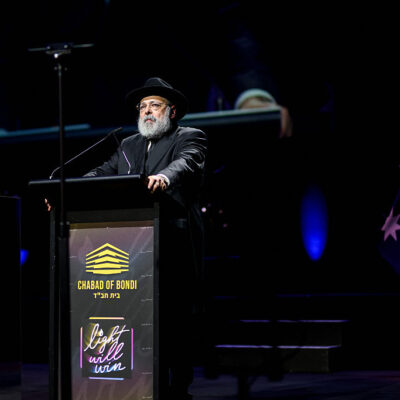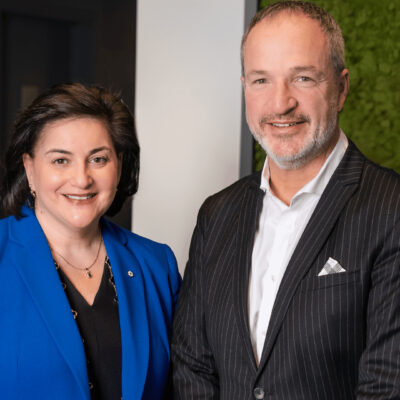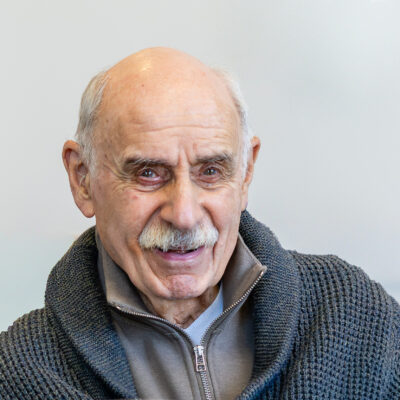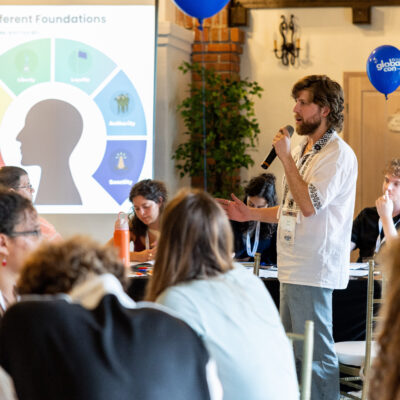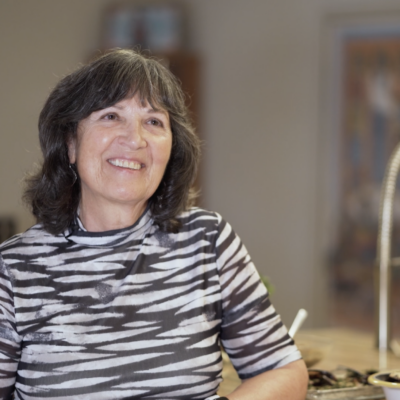BACK TO SCHOOL
Entering its 2nd year, preschool teacher training program ElevatEd expands to seven more cities
The initiative, which is run by JFNA, JCC Association and URJ, comes to Atlanta, Chicago, Cleveland, Miami, Pittsburgh, Seattle and St. Louis

Getty Images
The early childhood education initiative ElevatEd is expanding to seven new cities beginning this school year with the goal of training hundreds more preschool teachers in the coming years, the organizations behind the project said this week.
The new cities are: Atlanta, Chicago, Cleveland, Miami, Pittsburgh, Seattle and St. Louis. The expansion to those cities is being supported by their local Jewish federations, as well as an anonymous private foundation.
ElevatEd, which is run jointly by the JCC Association of North America, Jewish Federations of North America and the Union for Reform Judaism, launched last year in five cities: Boston; Denver; Houston;: East Bay, Calif.; and Long Island, N.Y. While each of the participating cities financially supports the initiative, the bulk of the funding comes from the Jim Joseph Foundation, Crown Family Philanthropies and the Samuels Family Foundation.
The goal of the three-year pilot program is to ultimately train an additional 300 early childhood educators — 30 in each community — in an effort to address the national shortage of well-trained preschool teachers.
“We are thrilled to partner with seven new cities across the country for the second cohort of ElevatEd, as we continue to refine our talent and recruitment strategies and adapt our curriculum based on valuable feedback from the first cohort,” ElevatEd executive director Orna Siegel said in a statement.
“While expanding into new diverse communities, we are deepening our relationships in the five communities from our first cohort,” she said.
The shortage of early childhood educators is not only a problem in Jewish schools but is a national issue, one that was exacerbated by the COVID-19 pandemic, according to a recent study by the National Institute for Early Education Research.
It is particularly acute in private Jewish schools as many teachers prefer the often higher salaries and better benefits offered by public institutions. “Not only are we losing teachers from year to year, but also teachers are getting jobs in public schools during the year,” Sasha Kopp, senior director of ElevatEd education and engagement, told eJewishPhilanthropy last year.
In addition to existing teachers moving to the public school system, Kopp said there is also a shortage due to demographic shifts, as young families have moved to areas that do not have sufficient Jewish education infrastructure. “Our schools are not able to provide enough high-quality early childhood classes in the neighborhoods where young families are living to be able to support our greater Jewish landscape,” Kopp said.
Under the program, participants without teaching credentials start a year of study, as well as an 18-month period of mentorship and receive “funds to support their work toward a credential in early childhood education,” according to the JCC Association. Mid-career teachers in participating schools will also participate in a “research-based mentor training program” to support the new educators in their schools, the organization said.
“We’ve also incorporated unique learning tracks that accommodate the diverse Jewish knowledge of our educators,” Kopp said in a statement on Monday.
This includes an introductory course for those unfamiliar with basic Jewish concepts, an intermediate course focusing on Jewish holidays and an advanced track for educators in schools that teach Torah or the weekly parsha.
At the end of ElevatEd’s three-year pilot period, the organization will assess its efficacy and performance and determine how to proceed, Siegel told eJewishPhilanthropy when the group launched last year.
“We are experimenting in communities across North America and exploring the ways in which we can have the greatest positive impact on the Jewish community through the lens of early childhood. We will use learnings from our three-year pilot to develop a strategic plan for future work in this area,” she said.
While the program is specifically focused on early childhood education, Siegel told eJP that she believes it will have far-reaching effects.
“The research is clear: families who send their children to Jewish early childhood programs have a significantly greater likelihood of continued Jewish communal engagement for years to come,” she said. “By focusing on increasing the pool of trained, high-quality educators in Jewish early childhood settings, we believe that this investment will significantly grow the capacity and reach of this powerful educational experience, in turn creating an environment for children and families to root deeply and grow into a strong, connected, diverse Jewish ecosystem.”

 Add EJP on Google
Add EJP on Google



